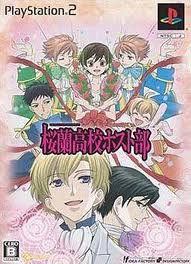

While searching for a quiet place to study, Haruhi stumbles on an unused music room which turns out to be the club room for the school's "Host Club", a group of Idle Rich boys who entertain female clients in a sort of Bleached Underpants version of actual host clubs.Īfter accidentally breaking a Renaissance-era vase that's worth 8,000,000,000¥ - far more than a working class student could possibly repay - Haruhi is forced to join the Host Club as an assistant to work off the debt. Haruhi Fujioka is a frumpy working class scholarship student, a rarity at the school. Ouran Academy is an Elaborate University High catering to the ultra, ultra-rich. It has a 26-episode anime adaptation by Studio Bones, which first aired in 2006.

As a primer, this project’s purpose is not to go into deep detail for these works, but instead to provide a solid base for any research that I would like to do in the future, helping to elucidate the place within the gaming canon and within academia for this intriguing subgenre.Ouran High School Host Club is a shoujo manga created by Bisco Hatori, which was originally serialized in LaLa from 2002 to 2010. I also discuss the historical background of these tropes and contrast them with Western media tropes and romance fiction, along with contemporizing works with LGBTQIA+ themes with events in LGBTQIA+ history as well. I will put a spotlight on works such as The Rose of Versailles (1971-1972), Fruits Basket (1998-2006), Ouran High School Host Club (2006), DRAMAtical Murder (2012, PC), Nameless: The One Thing You Must Recall (2013, PC), and Mystic Messenger (2016, Mobile), and discuss how the presentation of men and women-especially with LGBTQIA+ individuals-factors into the objectification and the liberation of its characters and its readers. In this I.S., I plan to lay a groundwork for various tropes, character types, and phenomena within these primarily Japanese forms of media. By writing this project, I hope to create a reference point for those interested in doing research about this topic, since there is little to no research available on otome games.

My Independent Study (I.S.), titled “2D Boys, 3D Desires – A Primer on Sexuality in Shoujo Manga, Anime, and Otome Games”, discusses gender expression and sexuality from a primarily female, heterosexual perspective within the aforementioned forms of media.


 0 kommentar(er)
0 kommentar(er)
